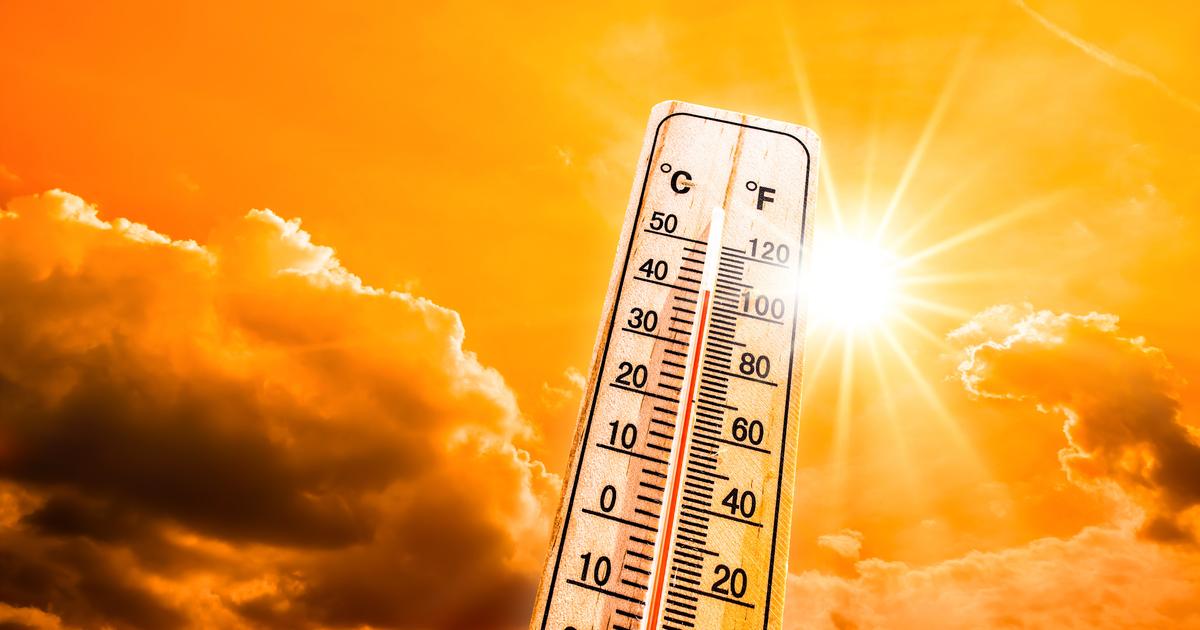Intergovernmental Panel on Climate Change: It's about the survival of mankind
Created: 2022-02-28Updated: 2022-02-28 12:39 p.m
A man watches forest fires approach Kochyli beach near Limni village on Evia island (Greece).
© Thodoris Nikolaou/AP/dpa
The devastating consequences of climate change are becoming increasingly clear.
The worst can still be averted with adaptation, says the IPCC, but time is of the essence.
It needs profound upheaval.
Berlin/Geneva - According to the new report by the Intergovernmental Panel on Climate Change (IPCC), global warming is already leading to dangerous changes in nature and billions of people are suffering more and more as a result.
"The impacts we are seeing today are occurring much more rapidly, and are more destructive and far-reaching than expected 20 years ago," the IPCC Working Group on Climate Change Impacts reported on Monday.
This increases poverty and inequality and will force more people who no longer have an income in their home country to migrate.
Even if we manage to limit warming to 1.5 degrees above pre-industrial levels, humanity will have to cope with significant impacts in the next 20 years.
Governments are still not doing enough to avert the worst of the dangers.
Expert: Germany must also do more
"We have a shrinking time window," warned the co-chair of the working group, German marine biologist Hans-Otto Pörtner.
He gives the federal government bad grades for its climate policy: "For the ambitions, it gets a three and for the implementation a four minus so far," he told the German Press Agency.
The consequences are already visible in all parts of the world: there are devastating forest fires like those in the Mediterranean and in the west of the USA, floods like in the Ahr and Erft region in July 2021, heat waves like in Siberia.
30 to 50 percent of the earth's surface must be kept available for natural areas.
These spaces could definitely be used, but only in a sustainable coexistence of man and nature.
"This way of thinking hasn't really arrived in politics yet," Pörtner told journalists.
Russia's war against Ukraine is throwing back efforts to protect the climate.
"This conflict feels like it has fallen out of time when you consider the existential needs humanity actually has in the context of the effects of climate change and the loss of biodiversity." The costs of dealing with the consequences of climate change and of adaptation measures have been underestimated.
Tipping points in sight
According to the IPCC documents, ecosystems are still absorbing more greenhouse gases than they produce themselves.
But that changes when primeval forest is cut down or peat bog areas are drained or the Arctic permafrost melts.
"This and other trends can yet be reversed if ecosystems are repaired, rebuilt and strengthened, and managed sustainably," the scientists write.
"Healthy ecosystems and rich biodiversity are the basis for human survival."
"Rising temperatures and extreme events such as droughts, floods and heat waves are exposing plants and animals to climatic conditions not experienced in tens of thousands of years."
According to the Intergovernmental Panel on Climate Change, global warming coincides with other challenges.
He enumerates the growing world population, people migrating to cities, excessive consumption, growing poverty and inequality, pollution, overfishing and most recently the coronavirus pandemic.
Disease risks continue to increase, dengue fever will spread, also to Europe.
Already enormous impact on plants and animals
Heat and extreme weather drove plants and animals on land and in the oceans toward the poles, to deeper waters, or to higher elevations.
Sea plants and animals are moving an average of 59 kilometers per decade toward the North and South Poles because of rising water temperatures.
Many species are reaching their limits in adapting to climate change and are threatened with extinction.
With global warming of two degrees above the pre-industrial level, 18 percent of today's land-based animal and plant species are threatened with extinction, at four degrees 50 percent.
more on the subject
Climate change: “Limited” time to avert the worst
Climate flop in Germany and the USA: What if democracy and climate protection are incompatible?
Slovakia: Corona becomes a problem for the government – Compromised populist Fico reaches for power again
"The timing of important biological events such as reproduction or flowering changes," the scientists report.
An example is the availability of insects at the time of bird breeding.
By the end of the decade, fishermen in tropical Africa could catch up to 41 percent less.
In Africa, fish is the main source of protein for a third of the people.
If warming reaches 2.1 degrees, by 2050 an additional 1.4 million children in Africa are likely to be permanently stunted from malnutrition.
Fundamental social changes are needed.
The energy must be clean, the throwaway mentality must be eliminated.
Cities and agriculture must be made sustainable and mobility must be changed: more cycling instead of driving, more train travel instead of flying.
Climate researcher and co-author Daniela Schmidt warned that it is important to take the entire population with you: "If we have wonderful green cities, people who live there now may no longer be able to afford it," she said.
The Intergovernmental Panel on Climate Change was founded in 1988.
The new report is part two of its sixth assessment report on climate change.
The first part on the scientific basis was published in August 2021.
The third part deals with ways to mitigate climate change.
He is expected in April.
According to the Intergovernmental Panel on Climate Change, the average global temperature between 2010 and 2019 was around 1.1 degrees higher than in the pre-industrial era (1850-1900) due to man-made greenhouse gases.
Since the 5th status report in 2014 alone, it had risen by 0.2 degrees.
dpa












